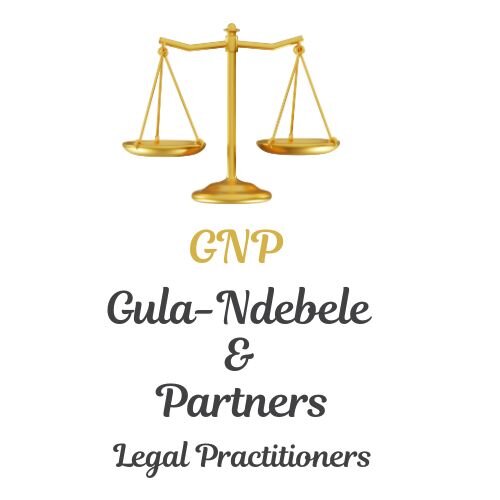Best Elder Abuse Law Lawyers in Zimbabwe
Share your needs with us, get contacted by law firms.
Free. Takes 2 min.
Or refine your search by selecting a city:
List of the best lawyers in Zimbabwe
About Elder Abuse Law in Zimbabwe
Elder abuse law in Zimbabwe seeks to protect the rights and wellbeing of senior citizens who may be subjected to mistreatment or neglect. This legal framework is designed to address various forms of abuse, including physical, emotional, financial, and institutional abuses, thus ensuring that older adults receive the respect and dignity they deserve. While not as comprehensive as legal frameworks in some countries, Zimbabwe has made strides in incorporating protections for elder individuals within its domestic laws and policies.
Why You May Need a Lawyer
Deciding to seek legal assistance in matters of elder abuse can be a necessary step for several reasons. These may include:
- Physical abuse: If an elderly person suffers physical harm, a lawyer can help navigate the legal system to hold the abuser accountable.
- Financial exploitation: Legal assistance may be needed to address situations where an elderly person's assets or finances are being manipulated or stolen.
- Neglect or abandonment: Cases where an elder’s basic needs are not being met may require the intervention of legal systems to ensure proper care.
- Violation of rights within care facilities: Lawyers can provide support when there are allegations of inadequate care or abuse within nursing homes or elder care facilities.
- Legal documentation: Lawyers can assist in drafting wills, power of attorney, and other documents to protect the interests of the elderly.
Local Laws Overview
The legal framework concerning elder abuse law in Zimbabwe encompasses several critical elements:
- Guardianship and Care Regulations: These rules define how guardianship is established for elder individuals and what responsibilities caregivers have.
- Constitutional Provisions: The Zimbabwean Constitution guarantees rights to all citizens, including older adults, providing a basis for legal claims related to abuses.
- Criminal Law: Acts of abuse may be prosecuted under criminal law, which encompasses assault, theft, fraud, or neglect.
- Human Rights Legislation: Zimbabwe has several human rights statutes that indirectly address issues of elder abuse by promoting the dignity and respect for all individuals.
Frequently Asked Questions
What qualifies as elder abuse in Zimbabwe?
Elder abuse can include physical harm, emotional abuse, financial exploitation, neglect, or any violation of an elder’s rights or dignity.
Who can report elder abuse in Zimbabwe?
Anyone who suspects elder abuse, including family members, friends, neighbors, or healthcare providers, can report it to local authorities or specific organizations.
How is elder abuse reported?
Reports can be made to local police authorities, social services, or to organizations dedicated to protecting the rights of the elderly.
What are the potential consequences for perpetrators of elder abuse?
Consequences can range from criminal charges, fines, or imprisonment, depending on the severity of the abuse.
Is there legal protection specifically for elder abuse in Zimbabwe?
While specifics may not be comprehensive, existing laws on abuse, exploitation, and neglect apply to elders.
Can elders seek compensation for abuse?
Elders may seek civil remedies, including financial compensation, for abuses suffered.
Do caregivers need legal representation?
Caregivers accused of abuse may require legal representation to address allegations and defend their rights.
How can elder abuse be prevented?
Prevention can include public awareness, caregiver education, and the creation of robust social support systems for the elderly.
Are there advocacy groups for elder abuse victims?
Yes, several NGOs and community groups work to protect and advocate for the rights of older adults in Zimbabwe.
What support is available for families of abuse victims?
Support may include counseling services, legal advice, and assistance from social service organizations.
Additional Resources
For individuals seeking more information or help, several resources can be useful:
- Ministry of Public Service, Labour and Social Welfare: This governmental body oversees the welfare services for older adults.
- Zimbabwe Human Rights Commission: Offers guidance and support for cases involving violation of human rights.
- Legal Resources Foundation (LRF): Provides legal advice and education regarding elder laws.
- HelpAge Zimbabwe: An NGO focused on the rights and well-being of older individuals.
Next Steps
If you or someone you know requires legal advice regarding elder abuse, consider the following actions:
- Contact a lawyer with experience in elder abuse cases for specific legal guidance.
- Gather documentation and evidence pertinent to the abuse for potential legal proceedings.
- Reach out to relevant organizations and support networks for assistance and advice.
- If in immediate danger, contact law enforcement authorities or emergency services.
Addressing elder abuse requires prompt and informed actions to ensure the safety and rights of elderly individuals are preserved.
Lawzana helps you find the best lawyers and law firms in Zimbabwe through a curated and pre-screened list of qualified legal professionals. Our platform offers rankings and detailed profiles of attorneys and law firms, allowing you to compare based on practice areas, including Elder Abuse Law, experience, and client feedback.
Each profile includes a description of the firm's areas of practice, client reviews, team members and partners, year of establishment, spoken languages, office locations, contact information, social media presence, and any published articles or resources. Most firms on our platform speak English and are experienced in both local and international legal matters.
Get a quote from top-rated law firms in Zimbabwe — quickly, securely, and without unnecessary hassle.
Disclaimer:
The information provided on this page is for general informational purposes only and does not constitute legal advice. While we strive to ensure the accuracy and relevance of the content, legal information may change over time, and interpretations of the law can vary. You should always consult with a qualified legal professional for advice specific to your situation.
We disclaim all liability for actions taken or not taken based on the content of this page. If you believe any information is incorrect or outdated, please contact us, and we will review and update it where appropriate.
Browse elder abuse law law firms by city in Zimbabwe
Refine your search by selecting a city.















